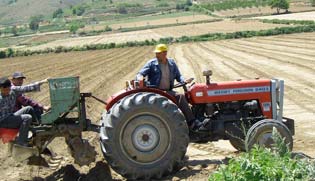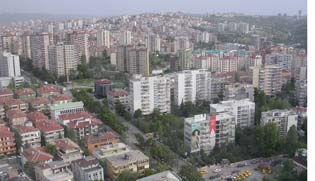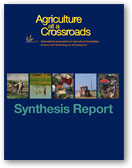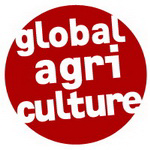
How to farm?


Around the world, as more and more people live in towns and cities, small farmers are being squeezed out of farming as their livelihoods are threatened.
At the heart of the choices we face in future food provisioning are questions about what is land for, how to farm and who will farm.
The farming systems developed in Europe and North America over the last hundred years or so, and now being copied globally, are modeled on industrial thinking, with inputs, outputs and waste. They are fossil-fuel based, labour replacing, and undermine soil and biodiversity. There is growing conflict between those who argue for what they call “sustainable intensification” - which still caries this way of thinking - and those arguing for a more agro-ecological approach to food and farming. This seeks to build on complex cycles and relationships found in ecosystems and link traditional and indigenous knowledge with modern scientific and technological knowledge.
Beyond techno-fix
The former approach tends to assume we humans have the creative capacity to invent our way out of the problems we have created, through technological innovation under the dominant economic orthodoxy, largely run, managed and controlled by corporate enterprises and in which demand is somehow external to the system. This, essentially, is what the EC’s Standing Committee on Agricultural Research (SCAR) 3rd Foresight report calls the ‘productivity narrative’.
To ecological sufficiency
The other approach they call the ‘sufficiency narrative’. This is a world which is built around agro-ecological principles and cyclical mechanisms across the food system, with respect for and building upon biodiversity. This gives the strength and resilience needed to maintain not just food and farming systems but long-term sustainable societies, in which equity and justice are fundamental. The role of an agro-ecological approach is discussed in a report by the UN Rapporteur on the Right to Food.
This latter approach requires focusing on different questions for science and technology than those in the productivity approach. Both the science and technology policies pursued also need to link up with the needs for healthy diets and fairness for those working on the land.
A growing movement has emerged around the world under the banner of Food Sovereignty, which is defined as 'the right of peoples to healthy and culturally appropriate food produced through ecologically sound and sustainable methods, and their right to define their own food and agriculture systems'.
IAASTD
It doesn't trip off the tongue but the International Assessment of Agricultural Knowledge, Science and Technology for Development was a major global piece of work to review the state of play in agriculture today and the needs for tomorrow. It argues that fundamental change in farming and food systems are needed to meet the needs of the 21st century which requires going beyond business as usual.

